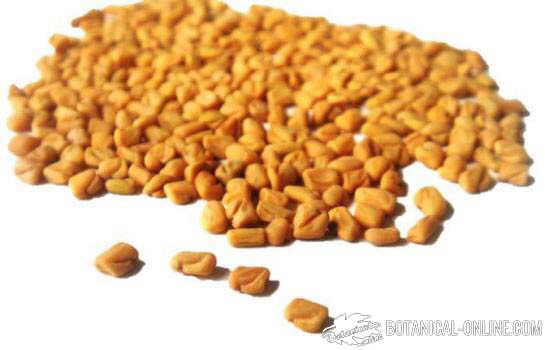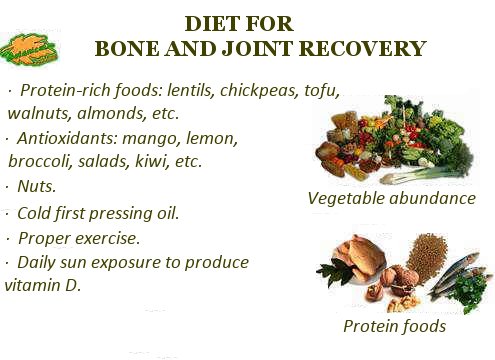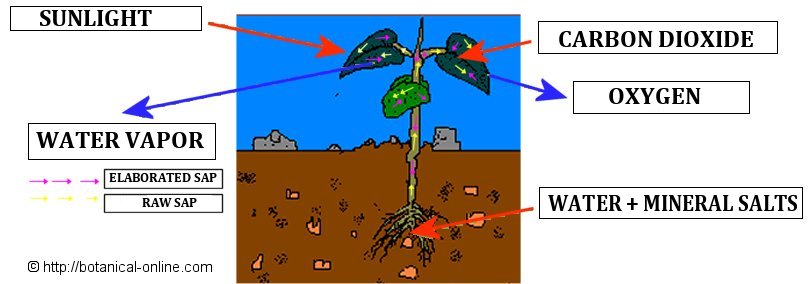Contents
- 1 Toxicity and contraindications of probiotics or supplements to the microbiota or gut flora
- 1.1 WHEN PROBIOTIC SUPPLEMENTS ARE NOT GOOD
- 1.2 What probiotics are contraindicated?
- 1.3 Toxicity of probiotics
- 1.4 What contraindications do probiotics have?
- 1.5 Probiotic supplements in pregnancy and lactation
- 1.6 Available probiotic milk
- 1.7 Probiotics may contain lactose, fructose, sorbitol and other sweeteners
- 1.8 Who should NOT take probiotic supplements?
- 1.9 Can I take supplements if I take antibiotics?
- 1.10 Probiotics to reduce gas and bloating?
- 1.11 Probiotics to prevent disease or improve health?
- 1.12 Can probiotics cause infections?
- 1.13 Side effects of probiotics
Toxicity and contraindications of probiotics or supplements to the microbiota or gut flora
WHEN PROBIOTIC SUPPLEMENTS ARE NOT GOOD
What probiotics are contraindicated?
Fermented foods such as yogurt, bifidus, miso, sauerkraut are not considered to have probiotic effects or contraindications in their bacteria content. Although, in some ways, they can help improve the composition of the intestinal microbiota, most of the bacteria they contain are killed in the stomach by the action of gastric acids.
Probiotics have only contraindications if they are supplements. Probiotic capsules resist stomach acid and have probiotic effect as they act directly releasing bacteria in the gut. Also they have a very high content in certain bacteria that is not found in food.
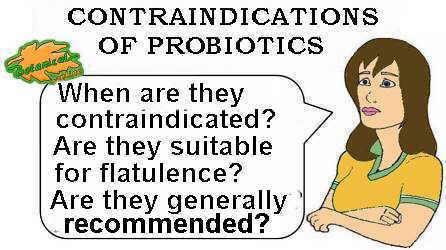
Doubts that can arise when taking probiotic supplements. Medical advice to succeed in treatment is recommended.
Toxicity of probiotics
Probiotics have no toxicity because many of the species that contain these supplements are naturally in our intestines.
What contraindications do probiotics have?
Any symptoms or impairment desired to be improved with probiotic supplements should be evaluated by a doctor. It is also advisable to be accompanied by a healthy diet and reduce stress.
It is not recommended to take probiotic supplements for more than 1 month, except by prescription.
Probiotic supplements are contraindicated in infants and children. Call your doctor if under 16 years.
*Related information: Contraindications of supplements
Probiotic supplements in pregnancy and lactation
Women during pregnancy or while breastfeeding should not take probiotic supplements. They are only recommended in certain cases and under medical supervision.
Available probiotic milk
The probiotics are used sometimes for its benefits in cases of food allergies and intolerances.
However you should pay attention because some probiotic supplements may contain milk, because the bacteria are grown in dairy bases. It is recommended to check the information on allergens on the label.
The same caution should be followed by people with an allergy to gluten (wheat), soy, or other ingredients. In case of doubt, you should consult with the manufacturer.
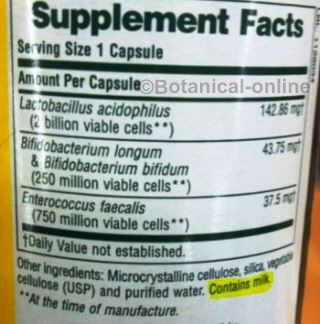
People with allergies should read labels since some probiotic supplements can contain milk or other ingredients that may cause allergy.
Probiotics may contain lactose, fructose, sorbitol and other sweeteners
People with intolerance to lactose, fructose or certain sweeteners should also read the labels because sometimes these components are part of the excipients, such as it happens in some envelopes or vials of drinkable probiotics.
Who should NOT take probiotic supplements?
Probiotic supplements are completely contraindicated in the following cases or illnesses:
- Autoimmune diseases: Medications to treat certain diseases interact with the use of probiotics. (Consult your doctor): AIDS, lupus, etc.
- Intestinal diseases: Probiotics have shown promising results as aids in the treatment of many digestive diseases. However, some drugs to treat these diseases interact with probiotics, so they can be contraindicated. (Consult your doctor): IBD, Crohn’s disease, ulcerative colitis, etc.
- Cancer: Probiotics have also shown positive results in some studies for the side effects of chemotherapy. However they are totally contraindicated in certain cancers such as leukemia. In these cases, foods with probiotics properties like yogurt are also contraindicated. (Consult your doctor)
- Taking other medicines: Probiotics may enhance or diminish the effect of certain medications. Do not take these supplements without consulting your doctor.
Can I take supplements if I take antibiotics?
 There are many products with probiotics, but not all are effective There are many products with probiotics, but not all are effective |
Your doctor may recommend taking probiotic supplements when treatment with antibiotics, which can weaken the intestinal microbiota (reducing composition beneficial bacteria) are made.
In this case, when taken together with antibiotic treatment, it is recommended to wait 2 hours between the antibiotic and probiotic supplement.
It is recommended to prolong taking probiotics for 10 days after completion of antibiotic treatment, in addition to a diet rich in fruits and vegetables, avoiding alcohol, tobacco and stress. (Consult your doctor)
Probiotics to reduce gas and bloating?
Some people take probiotics to reduce symptoms of swollen belly. In these cases the use of probiotic supplements is not indicated unless medically prescribed.
Taking probiotics is not a treatment for these symptoms as they may increase flatulence, especially when the type of supplement incorporates fibers or other prebiotics. It is best to consult a specialist doctor.
Probiotics to prevent disease or improve health?
It is not recommended to take probiotic supplements regularly or habitually as preventive (more than 4 times a year without justifiable medical cause).
The best prevention for proper intestinal health is eating a healthy diet, physical activity and reduce stress.
Can probiotics cause infections?
It has been reported that the administration of probiotic Lactobacillus caused sepsis (infection by taking probiotic supplement) in two cases of children who were in hospital treatment. In these cases probiotic supplements were administered to a baby 6 weeks and a 6 years, respectively, for more than 50 days.
It has been reported that people with short bowel syndrome may be more prone to infections by lactobacilli.
Probiotic supplements can help improve certain affectations, but always medical control for a successful treatment and to avoid unwanted side effects is recommended |
Side effects of probiotics
The intestinal microbiota is a very broad field of study and many of its effects are unknown. It should be noted that the expected effects can vary by several factors (type of supplement, strains or bacteria, quantity, individual,…).
Some people may experience more gas or flatulence than others with consumption of probiotics.
It is possible that in the future new regulations, indications and contraindications affecting these types of supplements appear.
* Related information:
– How to buy a good probiotic supplement
– Probiotics for Helicobacter pylori
– Importance of Diet: Prebiotics
![]() More information on probiotics.
More information on probiotics.

